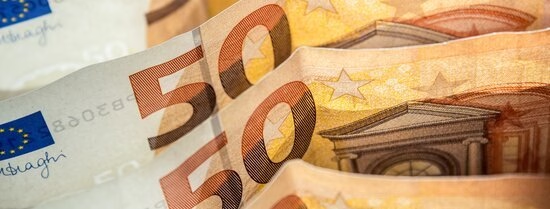Are the economic reforms demanded by the European Union (EU) and linked to the European COVID-19 investment package actually being implemented? Political scientist and public administration expert Prof. Dr. Markus Haverland of Erasmus University Rotterdam (EUR) has been awarded funding by the Netherlands Organisation for Scientific Research (NWO) to investigate this. With this grant from the Open Competition, of 580.000 euros, he can carry out research without having to meet thematic preconditions.
Covid-19 has also hit the EU economically hard, some member states harder than others, threatening the stability of the EU. In response, the EU has made a huge budget available for investment, coupled with the requirement to finally implement economic reforms, in areas such as the tax regime, the labour market, and public pensions, requested by the EU. Haverland will investigate whether the additional funds will enable this to happen. Will the political playing field change as the players in favour of reform are strengthened? Will they take up the challenge by framing reforms cleverly and breaking through resistance, or will Eurosceptic forces hold them back? Haverland will focus his research on Germany, Italy, the Netherlands and Spain.
Markus Haverland: "I am delighted with this funding because it allows to delve deeply into the fascinating political dynamics shaping Europe’s reform capacity. Especially now, with the war in Ukraine on top of the consequences of the corona crisis. How resilient is Europe really?
NWO Open Competition SGW
The SGW Open Competition aims to promote excellent free, curiosity-driven research with a primarily social sciences or humanities research question and problem definition.
About Markus Haverland
Prof. Markus Haverland holds the chair in Political Science at the Department of Public Administration and Sociology, Erasmus School of Social and Behavioural Sciences, Erasmus University Rotterdam. He is also a Fellow at the Montesquieu Institute (The Hague), the European Research Centre for Economic and Financial Governance (Leiden/Delft/Erasmus (LDE)), and the Netherlands School of Public Administration. He studied political science and public administration at the University of Konstanz and holds a PhD from the University of Utrecht. His research and teaching interests include EU policymaking, comparative politics, comparative public policy, and case study design. He is currently studying the impact of politicisation on EU agenda setting, decision-making, compliance and advocacy in general and in relation to financial and economic regulation.
- Professor
- More information
Marjolein Kooistra, press officer ESSB | kooistra@essb.eur.nl + 31 6 83676038

